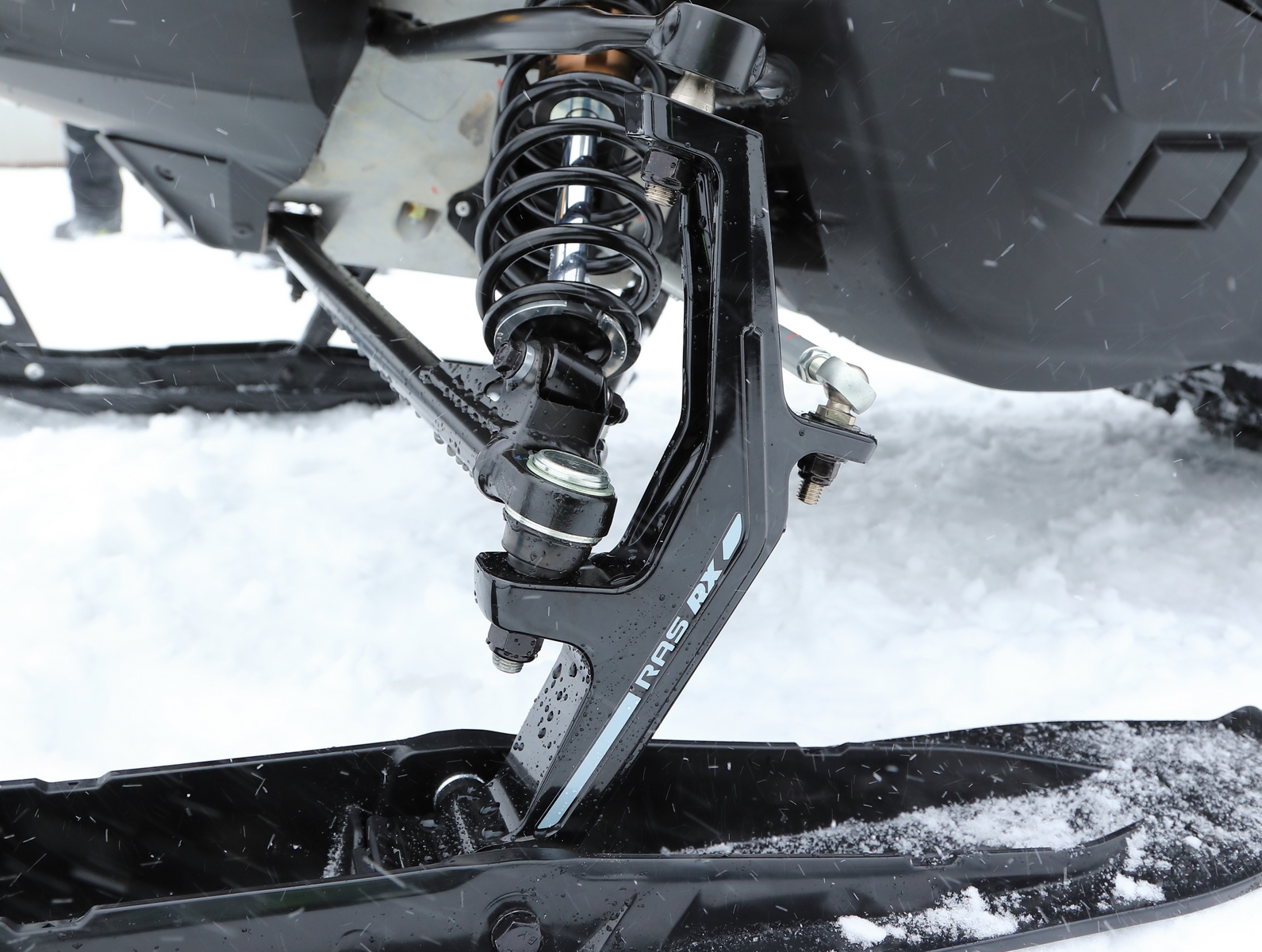Table of contents
ToggleFor 2025, the snowmobile manufacturer Ski-Doo introduces us to the brand-new RAS RX suspension. I had the opportunity to discuss with the Ski-Doo team to learn more, and I even had the chance to test it out. I’ll share what I’ve learned and my observations in this article.
Why the RAS RX suspension?
The goals of developing the RAS RX suspension were to keep the front of the snowmobile level during turns, increase the suspension travel, and primarily enhance the snowmobile’s precision in cornering.
The RAS RX suspension stands out with its higher roll centre by 25 mm compared to the centre of gravity. With the reduced distance between these two points, this increases the snowmobile’s stability in turns. In fact, the snowmobile’s tilt (chassis roll) is reduced by 20%.
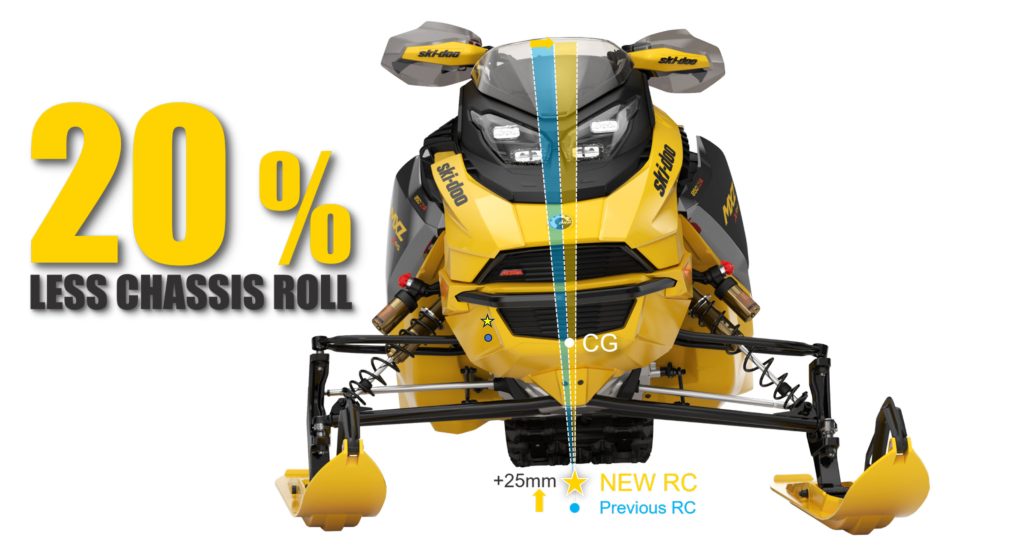
The rider will notice that the front of the snowmobile remains flatter during turns. Additionally, the tendency to ski lift will be greatly reduced.
How did they do it?
Of course, such changes required a revision of the front suspension geometry. Firstly, the ski leg was extended by 26 mm and the lower ball joint was raised by 11 mm. The suspension arms are now positioned flatter.
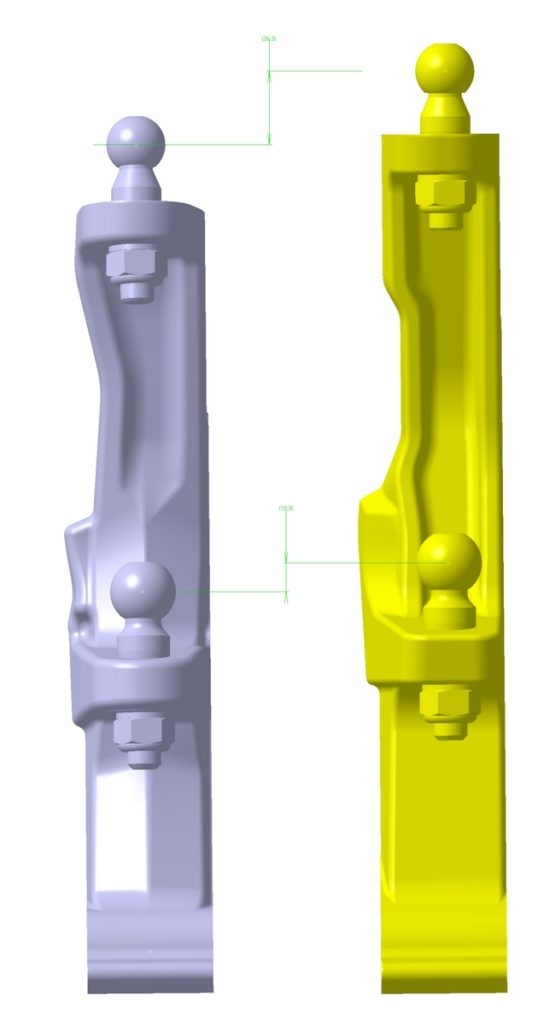
The suspension travel has been increased by 14 mm (279 mm in total). On the other hand, the ski is placed slightly further forward to increase control and reduce darting.
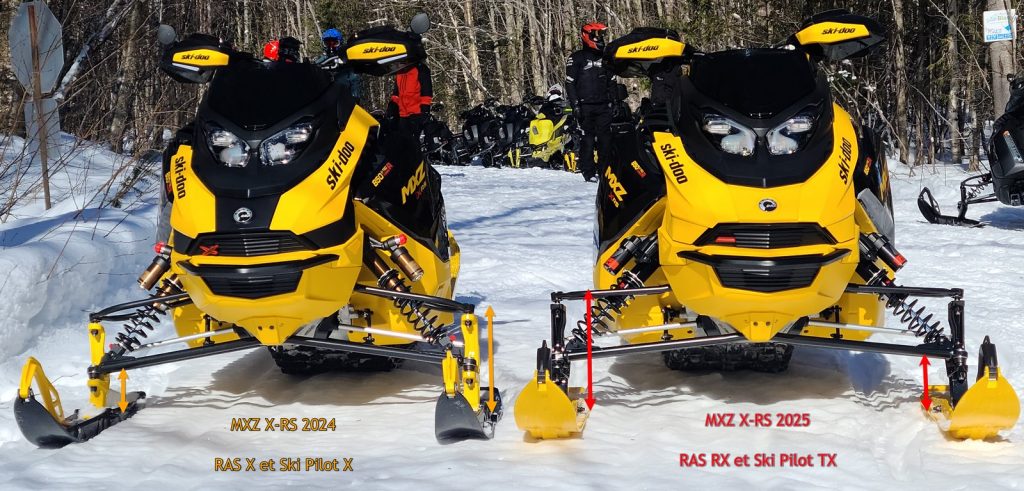
Availability
The RAS RX suspension is available in 2025 on the following trail models:
- MX Z Adrenaline
- MX Z Adrenaline Blizzard
- MX Z X
- MX Z X-RS
- MX Z X-RS with Competition package
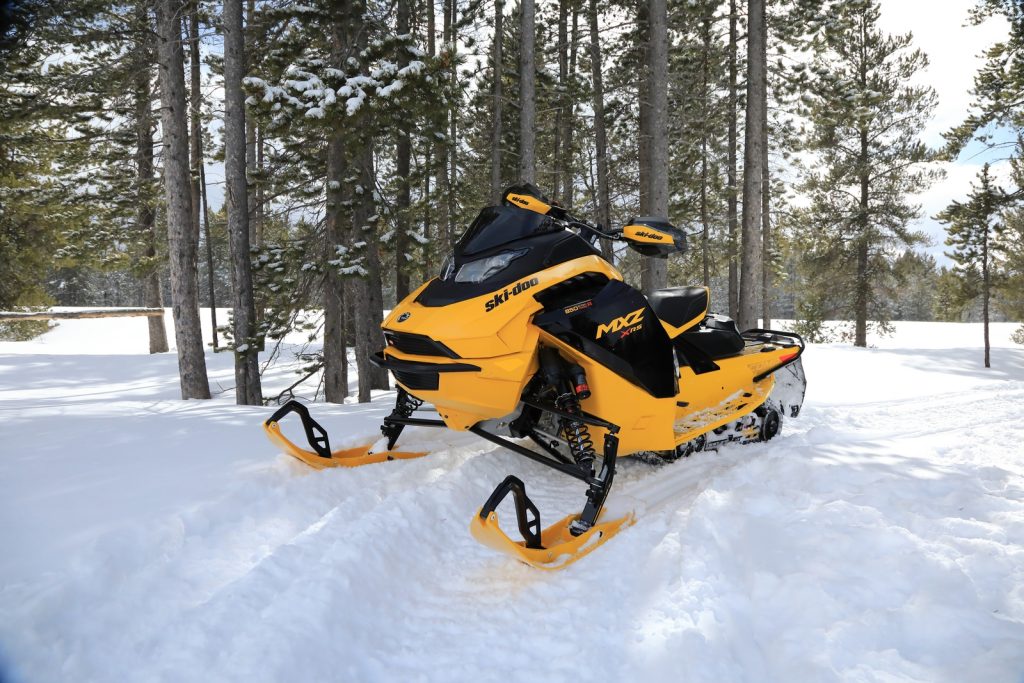
RAS RX available for the Backcountry X-RS
Those who favour Backcountry models and ride extensively on trails will be pleased to learn that the RAS RX suspension is also available for the X-RS package. They will be particularly delighted to know that the ski stance thus increases from 39 inches to 43 inches.
Therefore, this significantly wider stance, combined with the increased stability offered by the RAS RX suspension, will make maneuvering the Backcountry X-RS on trail corners easier. Additionally, the 43-inch version of this model comes equipped, as standard, with Pilot RX skis.
Of course, Ski-Doo also offers the Backcountry X-RS with the RAS X front suspension for those who prefer a ski stance of 39 inches. This variant will then be equipped with Pilot DS 2 skis.
New Ski With More Bite
Ski-Doo takes advantage of the launch of the RAS RX suspension to introduce the Pilot RX ski. This ski has been designed to offer a better grip in turns and also to reduce darting.
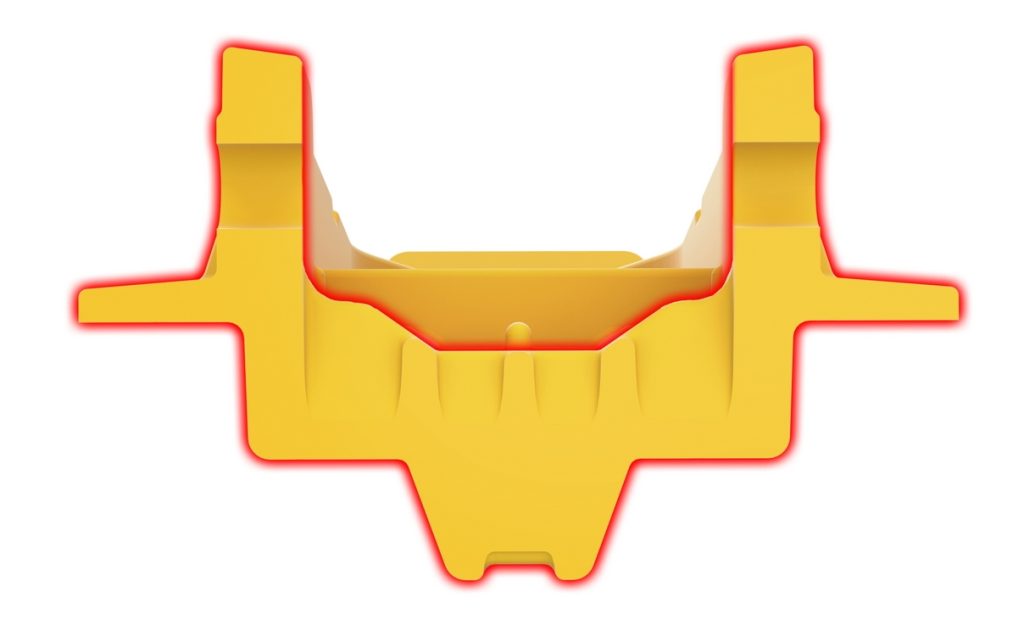
The Pilot RX ski features a two-level keel and is 20 mm wider. Its keel’s lateral surface is 60% larger than that of the Pilot X. With this increased lateral contact surface, the sides of the skis will press more into the unpacked snow during turns.
The Pilot RX Skis are available as standard on the following trail models:
- MX Z X
- MX Z X-RS
- MX Z X-RS with Competition package
- Backcountry X-RS (43-inch version)
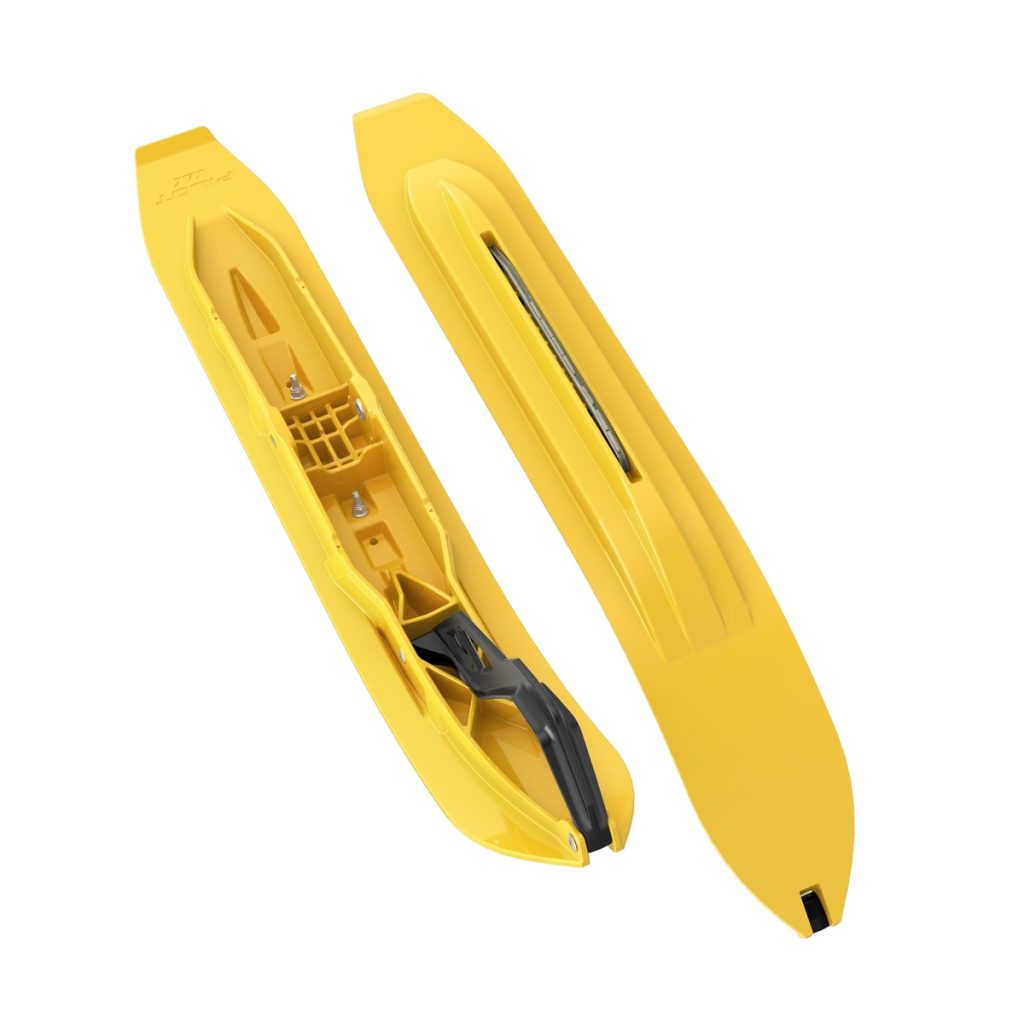
My observations on the Backcountry X-RS
I had the opportunity to test the RAS RX suspension and the Pilot RX skis. I must admit that I was pleasantly surprised, especially with the Backcountry X-RS. Over the years, I’ve ridden Backcountry models on trails and found them rather unstable in turns. Often, I had to significantly reduce speed to negotiate curves.
With its 43-inch ski stance, behind the handlebars of the Backcountry X-RS, I feel much more confident on winding trails. Furthermore, the Pilot RX ski’s contribution is also significant when the snow is unpacked. The skis have more bite in turns, greatly facilitating the ride.
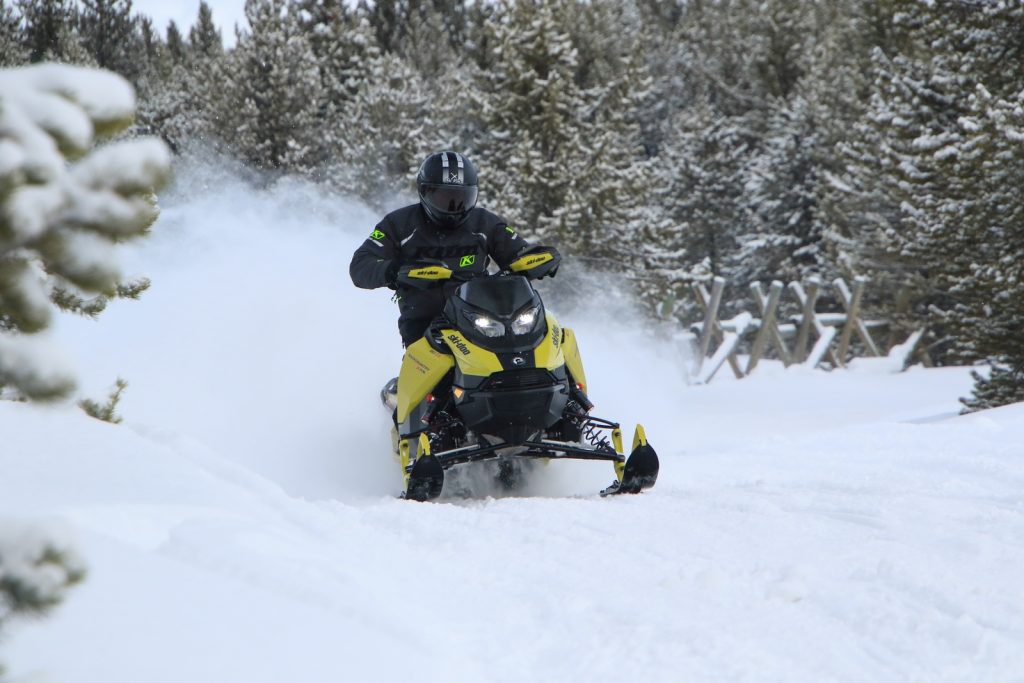
This is even more noticeable on the Backcountry models since they are equipped with a 146-inch track. As you know, the longer the track, the more the snowmobile tends to go straight in turns. The Pilot RX skis with their 60% larger lateral surface promote traction in the snow. Therefore, one quickly feels more confident because the snowmobile is more predictable.
Behaviour of the RAS RX Suspension in General
Across all models equipped with the RAS RX, one can feel that the front end is much more level in turns. I noticed that the outer ski shock absorber does not compress markedly in tight corners. Therefore, there’s no sensation that the front of the snowmobile is dipping outward in these circumstances.
In bumpy trails, the front of a snowmobile equipped with the RAS RX suspension remains very predictable and stable. It’s important to remember that this suspension originates from the world of competition.
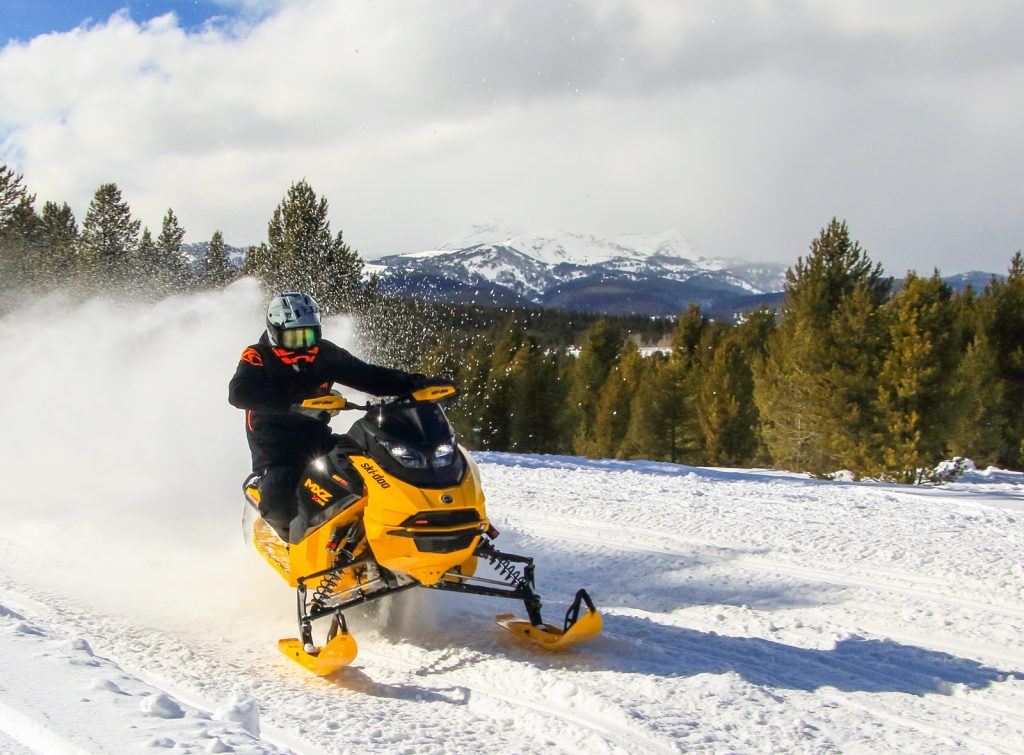
Overall, the RAS RX suspension along with the Pilot RX skis make the snowmobile more stable, predictable, and greatly facilitate cornering grip. The ride will be easier and more comfortable for the rider, minimizing fatigue levels during long rides.
Compatibility with Previous Models
In discussions with several engineers, I’ve learned that all components are compatible with corresponding models from previous years built on the GEN5 chassis. In fact, the attachment points on the chassis remain the same.
Therefore, it’s possible for an owner to upgrade their front suspension from RAS X to RAS RX. They simply need to acquire the conversion kit offered by Ski-Doo. For more information about this kit, you can visit this page.
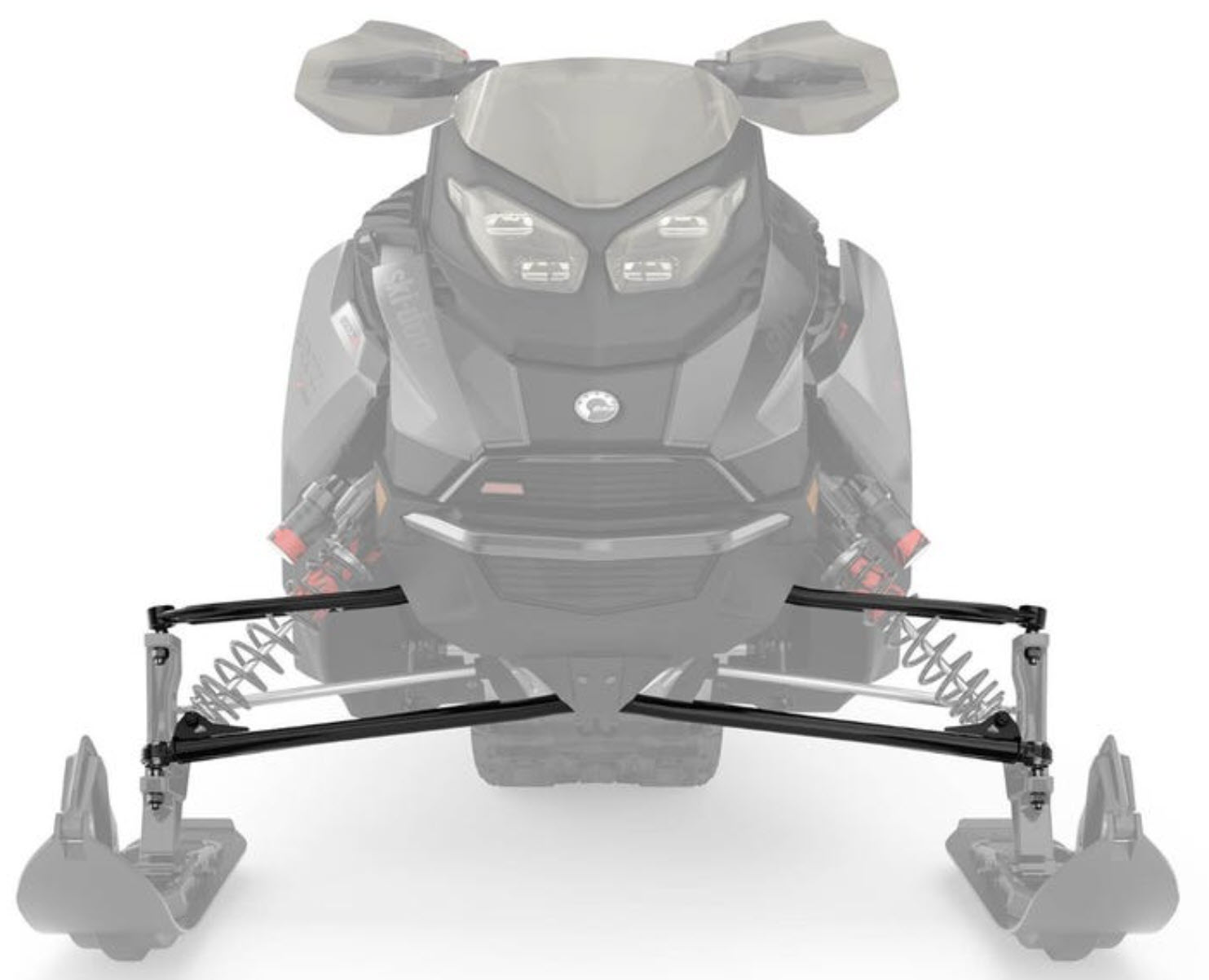
Spring Models
It’s worth noting that the majority of models for which the RAS RX suspension is available as standard are only offered during the Spring Sales period. This sale will end on April 2nd.
For further details, please consult your Ski-Doo dealer or visit the Ski-Doo manufacturer’s website.

